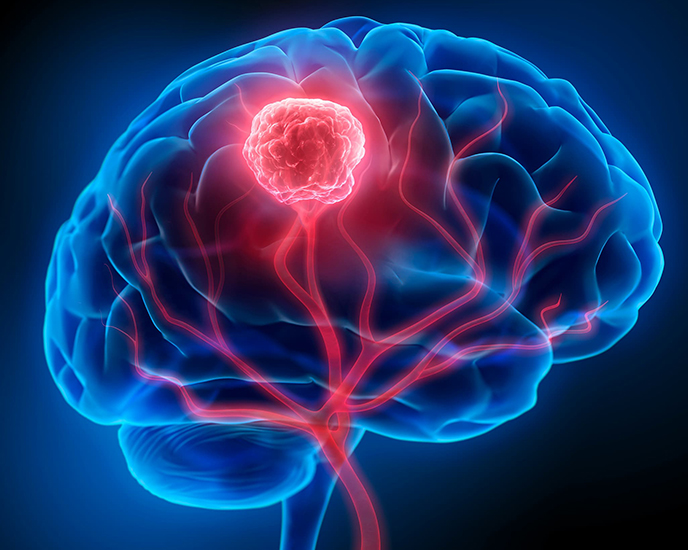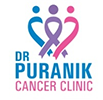Brain Tumor

Introduction
A Brain tumor is a collection, or mass, of abnormal cells in your brain. The brain is enclosed in an extremely hard skull. Any expansion in such a small location can lead to generate complications.. Brain tumors can be cancerous (malignant) or noncancerous (benign). When malignant tumors grow, they can lead to increase the pressure inside your skull to increase. This can cause brain damage, and it can also be life-threatening.
Brain tumors are categorized as primary or secondary brain tumor. The origin of primary brain tumor is in your brain. A secondary brain tumor, also known as a metastatic brain tumor, occurs when the cancer cells spread to your brain from another organ, such as your lung or breast.
Types Of Brain Tumor
Brain tumors are of many types Some brain tumors, such as a glioblastoma multiforme, are malignant and may be fast-growing. Other types of brain tumors, such as a meningioma, may be slow-growing and benign.Gliomas are common brain tumors in adults can develop from different types of glial cells.
The types of gliomas are:
- astrocytic tumors such as astrocytomas, which originate in the cerebrum. They can be grade 1,2,3.
- oligodendroglial tumors, which are often found in the frontal temporal lobes , they can be grade 1,2,3
- glioblastomas, which originate in the supportive brain tissue and are the most aggressive type and called as grade 4 GBM.
Symptoms Of Brain Tumor
-
Brain Tumor: Symptoms and Signs
- Headaches, which may be severe and worsen with activity or in the early morning.
- Seizures. People may experience different types of seizures. Certain drugs can help prevent or control them. …
- Personality or memory changes.
- Sleep problems.
- Memory problems.
- Nausea or vomiting.
- Fatigue.
- Drowsiness.
-
Treatment for brain tumors depends on a number of factors including the type, location and size of the tumor as well as the patient’s age and general health. Treatment methods and schedules differ for children and adults.
-
Depending on the patient s health , age , tumor type, several methods of treatment may be used. Neurosurgeons, medical oncologists, radiation oncologists, nurses, a dietician, and a social worker make up our team, which works together to deliver the best possible care.
-
Before treatment begins, most patients are given steroids, drugs that relieve swelling or edema. Your may receive anticonvulsant medicine to prevent or control seizures.
-
Some types of brain tumors grow rapidly; other tumors grow slowly. They are called as low grade and high grade
-
Treatment options include those described below, such as surgery, radiation therapy, chemotherapy, and targeted therapy.
Surgery may be the only therapy option for a low-grade brain tumour, especially if the tumour can be completely removed. Radiation therapy and chemotherapy may be utilised if the tumour is still visible after surgery. Surgery is frequently the first step in the treatment of higher-grade cancers, followed by radiation therapy and chemotherapy. Your team of specialists, which includes medical, radiation, and surgical oncologists, will devise a specific treatment plan for you.
If you have hydrocephalus, you may require a shunt to drain the cerebrospinal fluid. A shunt is a long, thin tube that is inserted into one of the brain’s ventricles and then threaded through the skin to another part of the body, most commonly the belly. It functions similarly to a drainpipe.
-
Excess fluid is carried away from the brain and is absorbed in the abdomen.
-
We at Dr Puranik Cancer Clinic offer the best brain tumor treatment with all latest treatment options being available like chemotherapy , targeted therapy, biological therapy and immunotherapy.
